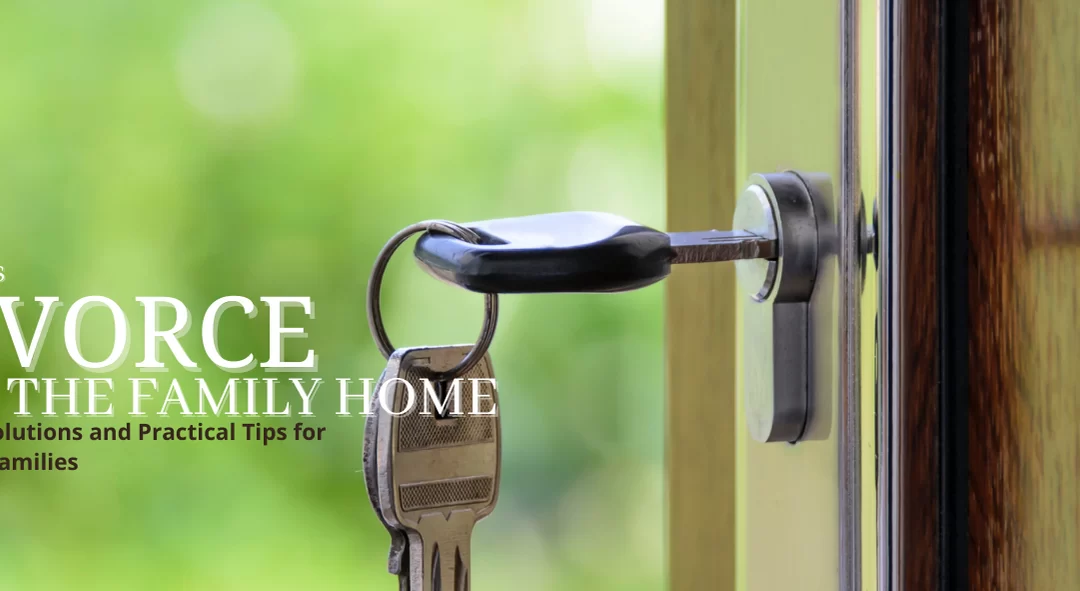admin
FAQs: Divorce and the Family Home in Colorado
One of the most challenging parts of a divorce is deciding what to do with the family home – especially with the recent rise of interest rates and property values. The family home, OF COURSE, is charged with all kinds of emotions and can be an incredibly charged topic during negotiations. To help ease some of your concerns, let’s go over 5 frequently asked questions about the family home during a divorce in Colorado.


How is the family home divided in a divorce in Colorado?
In Colorado, the family home is considered marital property, meaning it will be divided equitably between both spouses. The court will consider various factors like the duration of the marriage, each spouse’s contribution to the home, and their financial circumstances when determining how to divide the property.
What are the statistics on divorce and property division in Colorado?
According to the Colorado Department of Public Health and Environment, the divorce rate in Colorado is around 3.2 per 1,000 people. And when it comes to property division, the family home is often the most significant asset at stake. It’s important to remember that even though the process can be difficult, there are resources available to help.
What happens if we can’t agree on what to do with the family home?
If you and your spouse can’t agree on how to divide the family home, you may need to involve a neutral third party like a mediator. These professionals can help you find a creative solution that works for both parties without resorting to a court battle. This can reduce conflict and make the process much smoother for everyone involved.
What if one spouse wants to keep the family home?
If one spouse wants to keep the family home, they may need to buy out the other spouse’s share of the property. This can be done in a variety of ways, including through cash payments, trading other assets of equivalent value, or refinancing the mortgage. Working with a financial planner can help you determine which option is best for you.
Can we keep living in the family home together after the divorce?
It’s possible for both spouses to continue living in the family home together after the divorce, but it can be challenging. This is known as “nesting,” and it involves the children staying in the family home while the parents take turns living there. This arrangement can work well for some families, but it’s important to consider the logistics and potential conflicts that may arise.
What factors are considered when dividing the family home in a divorce?
The division of the family home during a divorce can be a complex process that depends on a variety of factors. These factors may include the length of the marriage, the contribution of each spouse to the acquisition of the property, the financial needs and resources of each spouse, and the best interests of any children involved. Other considerations may include the current market value of the property, any outstanding mortgages or liens, and the potential tax implications of the division.
Who gets the family home during a divorce in Colorado?
In Colorado, marital property is divided equitably, which means that it is divided fairly but not necessarily equally. The court will consider a variety of factors, including each spouse’s financial circumstances, to determine who will get the family home.
What happens to the mortgage on the family home during a divorce?
The mortgage on the family home will need to be addressed during the divorce proceedings. If one spouse is awarded the home, they may need to refinance the mortgage in their name only. Alternatively, the home may be sold and the proceeds used to pay off the mortgage.
Can I keep the family home if my spouse wants to sell it?
If you and your spouse cannot agree on what to do with the family home, the court may order its sale. However, it is possible for one spouse to buy out the other’s share of the home, provided they can come to an agreement on its value.
What if the family home is worth more than we owe on the mortgage?
If the family home is worth more than what is owed on the mortgage, the equity in the home will need to be divided between the spouses. This can be done by selling the home and splitting the profits, or by one spouse buying out the other’s share of the equity.
How long does it take to divide the family home during a divorce in Colorado?
The amount of time it takes to divide the family home during a divorce in Colorado can vary depending on the complexity of the case. On average, it takes about a year to finalize a divorce in Colorado. However, if the parties are able to come to an agreement on the division of assets, the process can be completed more quickly.
What are some creative solutions for dividing the family home in a divorce?
There are many creative solutions that can be used to divide the family home during a divorce. One option is to sell the home and divide the proceeds between the spouses. Another option is for one spouse to keep the home and buy out the other spouse’s share of the equity. Some couples choose to continue owning the home together and rent it out to tenants, while others may agree to alternate use of the property, such as one spouse living in the home during the school year while the other lives there during the summer.
Do I need a lawyer to help me divide the family home during a divorce?
While it is possible to navigate the division of the family home during a divorce without a lawyer, it is generally recommended to seek legal counsel to ensure that your rights are protected and the division is fair and equitable. An experienced divorce attorney can help you understand the legal and financial implications of dividing the property, negotiate on your behalf, and draft a legally binding agreement that protects your interests. Additionally, working with a mediator can provide a more collaborative approach to finding solutions that work for both parties.
Whatever option you choose, just remember that it’s important to work together and find a solution that works for both parties. So don’t be afraid to reach out to me. I’m here to help you navigate this challenging time and find a solution that allows you to move forward with your life. And hey, with a little creativity and a lot of teamwork, you might just come up with a solution that you never even thought was possible!
